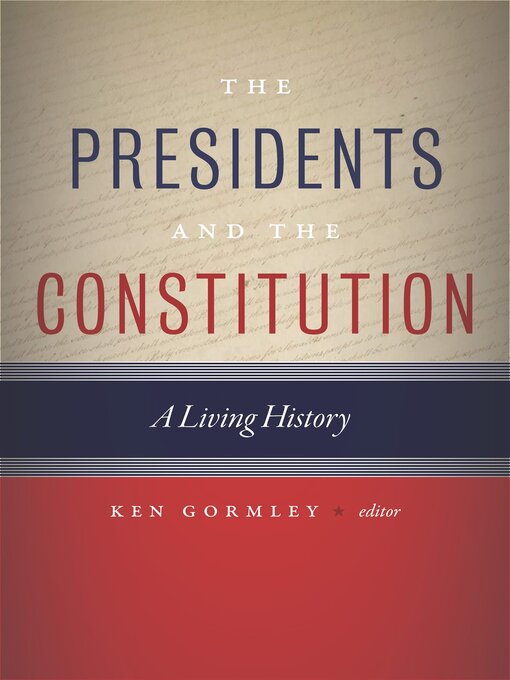Shines new light on America's brilliant constitutional and presidential history, from George Washington to Barack Obama.
In this sweepingly ambitious volume, the nation's foremost experts on the American presidency and the U.S. Constitution join together to tell the intertwined stories of how each American president has confronted and shaped the Constitution. Each occupant of the office—the first president to the forty-fourth—has contributed to the story of the Constitution through the decisions he made and the actions he took as the nation's chief executive.
By examining presidential history through the lens of constitutional conflicts and challenges, The Presidents and the Constitution offers a fresh perspective on how the Constitution has evolved in the hands of individual presidents. It delves into key moments in American history, from Washington's early battles with Congress to the advent of the national security presidency under George W. Bush and Barack Obama, to reveal the dramatic historical forces that drove these presidents to action. Historians and legal experts, including Richard Ellis, Gary Hart, Stanley Kutler and Kenneth Starr, bring the Constitution to life, and show how the awesome powers of the American presidency have been shapes by the men who were granted them. The book brings to the fore the overarching constitutional themes that span this country's history and ties together presidencies in a way never before accomplished.
- Available now
- New eBook additions
- New kids additions
- New teen additions
- Most popular
- Try something different
- NYPL WNYC Get Lit Book Club
- Spotlight: Toni Morrison
- See all ebooks collections
- Available now
- New audiobook additions
- New kids additions
- New teen additions
- Most popular
- Try something different
- NYPL WNYC Get Lit Book Club
- Spotlight: Toni Morrison
- See all audiobooks collections


